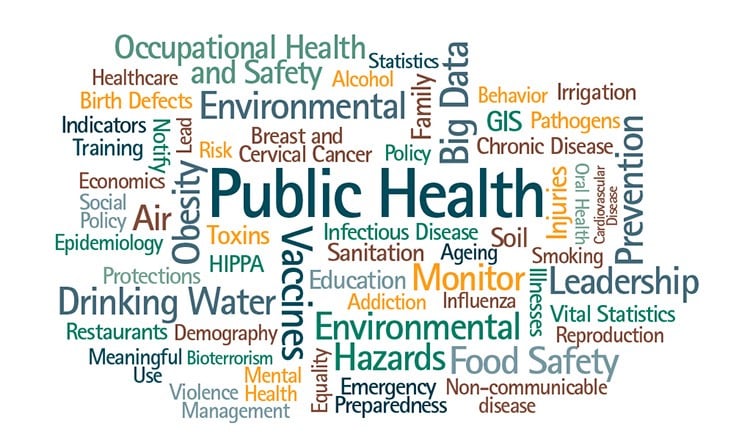Every organization needs talented administrators, managers, and executives to succeed, but not everyone has the business skills to keep the industry profitable.
To attain the highest level in healthcare, you should aim to become an administrator. Becoming a healthcare administrator is not working in the park. It requires time, effort and some level of academic exposure.
In this article, you will learn the step-by-step procedures for attaining a Healthcare Administration position, including the schools, programs, and salary.
Healthcare administration involves the coming together of the entire healthcare system, including the physicians, hospitals, health agencies, Specific departments; such as critical care units, and emergency departments, Specific clinical areas; such as nursing and physical therapy, and other Specific areas, such as staffing, admissions, and finances to achieve a common goal. Their goal is to run the affairs of the healthcare system.
Although healthcare administration is focused on the business side of healthcare, it does not change how they see the quality and highly effective patient care.
Additionally, healthcare administrators greatly influence the availability, accessibility, and quality of healthcare in our communities.
Read on to learn the history and evolution of Healthcare administration.
Table of contents
- A Brief History of Healthcare Administration
- The Accreditation
- What Do I Need to Become a Healthcare Administrator?
- Colleges for Healthcare Management
- The University of North Carolina at Chapel Hill-North Carolina
- Winston-Salem State University-Salem, North Carolina
- Western Carolina University-Cullowhee, North Carolina
- SUNY Polytechnic Institute at Utica-Rome-Utica, New York
- Trine University-Fort Wayne, Indiana
- University of Michigan-Ann Arbor, Michigan
- Rutgers University-New Brunswick, New Jersey
- Nebraska Methodist College of Nursing & Allied Health-Omaha, Nebraska
- University of St. Francis-Joliet, Illinois
- Midway College-Midway, Kentucky
- How Much is a Healthcare Administrator’s Salary?
- Conclusion
- Reference
- We also recommend this:
A Brief History of Healthcare Administration
Healthcare administration has developed together with advances in medical science and the growth of hospitals worldwide.
In the early 1800s, hospitals offered little or no support for patients because there were no facilities, equipment, or knowledge of professional medical treatment.
However, in the early 20th century, innovations in medicine and anesthesia, and also the discovery of antibiotics and the development of modern surgical facilities transformed hospitals into places that could provide treatment and relief of pains.
The Evolution of Healthcare Administration
Between 1875 and 1925, the number of hospitals in the U.S. grew from 170 to about 7,000, while the number of hospital beds increased from 35,000 to more than 860,000, so it became clear that there had to be some training to prepare people to assume and manage the administrative responsibilities.
Before the first formal hospital administration and nursing school administration educational programs were established in 1934 at the University of Chicago, nurses, often called superintendents, took responsibility for all administrative roles.
The University of Chicago was the first university to offer a Master’s Degree awarding program following the publication of the first book on hospital administration in 1229, entitled Hospital Administration. A Career: The Need for Trained Executives for a Billion Dollar Business, and How They May Be Trained. By the 1940s, eight more universities had developed programs. Nine more programs followed in the 1950s and fifteen more in the 1960s.
The Accreditation
In 1968 the Accrediting Commission on Graduate Education for Hospital Administration (now the Commission on Accreditation of Healthcare Management Education) became the accrediting agency for graduate programs in health administration.
Today, many educational and professional associations sponsor this agency, including the American College of Healthcare Executives, the American College of Medical Practice Executives, the American Public Health Association, and the American Hospital Association.
Also, Data from the American Hospital Association(AHA) shows that there are:
- 5,515 Registered Hospitals
- 5,010 Community Hospitals
- 2,923 Nonprofit Hospitals
- 982 Profit private-owned community hospitals
- 1,105 State and Local Government Community Hospitals
- 808,069 Staffed Beds in Community Hospitals
What Do I Need to Become a Healthcare Administrator?
Healthcare administrators are skilled personnel who manage the business operations of medical Industries such as hospitals, clinics, and community health centres. If you want to pursue a career in this field, there are certain steps to obtain the necessary qualifications, skills, and licensure.
Obtain a Bachelor’s degree
The first step to becoming a healthcare administrator is obtaining a Bachelor’s degree and maintaining a good scholastic record. However, this is usually only acceptable for entry-level positions in smaller organizations such as clinics.
Apparently, many factors affect the duration of a bachelor’s program. However, most people can complete a bachelor’s in healthcare administration in four years. Still, students enrolled in accelerated programs may earn their degree in three years, and part-time students may take seven years.
A bachelor’s degree is also a must-have credential if you plan to earn a master’s degree in the field at some point.
The top universities offering healthcare Administration are discussed at the latter end of this article.
Colleges for Healthcare Management
Obtaining a degree in healthcare management prepares you for management and supervisory positions within these settings. Correspondingly, pursuing an advanced degree can become a CEO, CFO, or other executive and help shape the future vision of that healthcare organization.
To obtain a healthcare management position at this level, it is important to choose the right affordable degree program. Below is a list of affordable institutions for those seeking to advance in healthcare management.
The University of North Carolina at Chapel Hill-North Carolina
| Tuition | Admission rate |
| $11,994 | 28% |
The University of North Carolina is known as a Public Ivy League institution that offers quality education for an affordable price. The school is ranked 5th position in nation’s US News & World Report in their list of top public institutions. It is accredited by the Southern Association of Colleges and Schools, Commission on Colleges.
Basically, UNC offers a Master’s in Healthcare courses, including Healthcare Management Skills; Health Care in the United States Structure and Policy; Statistical Methods for Health Policy and Management; Healthcare Policy and Economics of Healthcare Insurance.
The CAHME-accredited program takes approximately two years to complete. Those in the executive program take courses online and come to campus thrice yearly to network and engage in practical management activities. Students complete a capstone project and a leadership practicum before graduation.
For more information about the school, click on the website below.
Winston-Salem State University-Salem, North Carolina
| Tuition | Admission rate |
| $8,340 | 56% |
Winston-Salem State University is a public, historically black university accredited by the Southern Association of Colleges and Schools, Commission on Colleges.
The school also offers a Bachelor of Science in Healthcare Management and a Masters of Healthcare Administration. Courses for the MHA, including Leading Organizations; Project Management; Decision Analysis in Healthcare; Healthcare Marketing; Medical Informatics, is offered in a hybrid format of online and onsite.
Courses onsite meet during the evening or on weekends to accommodate working professionals. Students move through the program as a cohort, typically limited to 20 students.
Western Carolina University-Cullowhee, North Carolina
| Tuition | Admission rate |
| $11,978 | 38% |
Western Carolina University is a public institution founded in 1889 and accredited by the Southern Association of Colleges and Schools, Commission on Colleges. WCU is ranked #37 by US News & World Report in its list of best Regional Universities of the South.
WCU offers a Master of Health Sciences with a concentration in Health Management courses, including Leadership Strategies; Cost Containment; Medicare & Medicaid; Health Care Marketing; Problem-Solving and Decision Making.
The program can be completed online. Students must complete either a guided research project or a thesis to meet graduation requirements. See the school website below for more information.
SUNY Polytechnic Institute at Utica-Rome-Utica, New York
| Tuition | Admission rate |
| $12,810 | 48% |
The State University of New York (SUNY) Polytechnic Institute is the world’s most advanced research institution, with over 300 corporate partners. SUNY Polytechnic Institute is accredited by the Middle States Commission on Higher Education.
SUNY offers an MBA in Technology Management with a concentration in Health Services Management courses, including Health Care Systems; Health Care Marketing/Strategic Planning; Financial Management for Health Care Organizations; Quantitative Business Analysis; Project Management.
The program can be completed fully online either part-time or full-time. Faculty are known for their strong academic credentials.
Trine University-Fort Wayne, Indiana
| Tuition | Admission rate |
| $13,593 | 30% |
Trine University is a private institution located on a 450-acre campus and was founded in 1884. Trine University is accredited by the North Central Association of Colleges and Schools, The Higher Learning Commission. It offers a Master of Science in Leadership with a Healthcare Systems Studies concentration.
The online coursework includes Leadership and Management of Healthcare Systems, Legal and Ethical Issues in Healthcare Leadership; Qualitative Decision Making; Organization and Economics of Healthcare Delivery Systems, Healthcare Systems Capstone.
The program follows a cohort format, and aims to expand the understanding of what it means to be a leader and best practices within healthcare leadership and management positions.
University of Michigan-Ann Arbor, Michigan
| Tuition | Admission rate |
| $14,074 | 33% |
The University of Michigan is a public sea and space grant institution accredited by the North Central Association of College and Schools, The Higher Learning Commission. It is ranked the 29th best college in the county by US News & World Reports.
UM offers a Master of Health Services Administration program appropriate for professionals, policy analysts, planners, and consultants in courses including Health Services Systems; Professional Development; Healthcare Accounting; Heath Policy; Law or Political Science.
Several joint degree options include a joint MHSA/Master of Nursing Administration, MHSA/Juris Doctor, MHSA/Master of Public Policy, and MHSA/MBA. Students can complete their MHSA degree in approximately two years. Students gain additional professional experience during a 10-12 week internship.
Rutgers University-New Brunswick, New Jersey
| Tuition | Admission rate |
| $16,040 | 60% |
Rutgers University is a public research institution and the largest university in New Jersey, accredited by the Middle States Commission on Higher Education.
The Carnegie Classification for Rutgers is Research Intensive University-Very High Research Activity. Rutgers is ranked 34th in the country and 52nd in the world by the Academic Ranking of World Universities (ARWU).
The school offers a Master of Science in Health Care Management for established professionals in the health care field in courses including Evidence-Based Literature Review; Multi-disciplinary Dimensions of Clinical Systems Management; Principles of Trans-Cultural Health Care; Social & Healthcare Policy for the Older Adult; The ABC’s of Managed Care.
Students complete the program part-time. Courses are offered online in 8-15 week sessions.
Nebraska Methodist College of Nursing & Allied Health-Omaha, Nebraska
| Tuition | Admission rate |
| $17,327 | 33% |
Nebraska Methodist College is a private college accredited by the North Central Association of Colleges and Schools, The Higher Learning Commission and offers degrees in nursing and allied health professions.
The school offers two master’s degrees in Healthcare Management courses, including Leadership and Management; Change Management; Individual and Team Creativity; Managing Team and Group Dynamics; Organizational Learning through Mentoring/Mentorship.
The Health Promotion Management program integrates health and wellness with business areas. The program is offered online, and students learn how improving employee wellness benefits the bottom line.
The Healthcare Operations Management Program is also offered online and provides a foundation for seeking leadership and management positions in the healthcare.
University of St. Francis-Joliet, Illinois
| Tuition | Admission rate |
| $17,556 | 51% |
The University of St. Francis is a private institution with ties to the Roman Catholic Church accredited by the North Central Association of Colleges and Schools, The Higher Learning Commission.
USF offers a Master of Science in Health Administration designed for students with experience in the field.
Courses offered include Organizational and Human Resource Management; Medical Sociology; Health Economics and Policy; Health Information and Analytics; Health Care Finance and are primarily online, with some courses meeting in the evening or on a six-all-day Saturday sessions.
The degree program can be completed in just 15 months. Those students preferring not to take courses online can participate in the on-campus program.
Midway College-Midway, Kentucky
| Tuition | Admission rate |
| $18,624 | 54% |
Midway College is a small, private institution in the heart of Kentucky accredited by the Southern Association of Colleges and Schools, Commission on Colleges. The main campus is home to Kentucky’s only Women’s College.
MC offers a 100% online MBA specialising in Health Care Administration courses, including Advanced Health Care Financial Management; Health Care Politics and Policy; Advanced Health Care Management; Ethics and Management Dilemmas in Health Care; Capstone in Health Care.
The program provides business knowledge focused on the healthcare industry. Students can expect diverse courses related to economics, statistics and quantitative analysis to help professionals make educated business decisions.
How Much is a Healthcare Administrator’s Salary?
The 2016 median annual healthcare administrator’s salary was $96,540. Half of all healthcare administrators earned less than this amount, and half earned more. Salaries for 2016 ranged from $56,970 for the lowest 10 per cent to $172,240 for the highest 10 per cent.
Bureau of Labour Statistics shows that 2017 Healthcare administrators working in 2017 had an average mean salary of $98,350 per year and $47.29 per hour. Like other medical field careers, employment for healthcare administrators or managers in 2017 was expected to grow 20%, creating lots of opportunity and stability in the field.
Also, according to Payscale.com, those with a Bachelor of Science in Health Services earn, on average, $48,573 annually. Entry-level administrators with bachelor’s degrees earn between $24,730 and $58,175 annually, which increases with experience.
Conclusion
Becoming a professional and successful healthcare administrator requires a lot of hard work. It all starts with a burning desire to lead and an in-depth understanding of the healthcare industry.
Although the range of talents acquired by some of the best healthcare administrators varies, there is a need for a Master in Healthcare Administration degree.
Many accredited and reputable universities worldwide offer the educational background you need to be a professional in this field.
In summary, it is a combination of the educational process and practical experience at the place of work that makes one a successful administrator.
FAQS on healthcare administration
Below are the Career Possibilities in Health Care Administration
> Hospital CEO.
> Hospital CFO (chief financial officer)
> Nursing home administrator.
> Clinic administrator.
> Hospital department manager.
> Medical office business manager.
> Dental office administrator.
> Chiropractor office manager.
Obtain a bachelor’s degree, and focus on maintaining a good scholastic record;
Earn a master’s degree in healthcare administration, business administration, and public health, and Gain relevant work experience.
There is no track information for nursing administrators specifically. However, the U.S. Bureau of Labor Statistics (BLS) reports the median salary for all medical and health services managers to be $98,350 per year.
The lowest 10 per cent of administrators, like those in entry-level positions, earned less than $53,940 annually, with mean wages of $25.93 per hour.
The top 10 per cent of administrators (e.g. those in executive positions) earned more than $150,560 annually, with mean wages of $72.39 per hour.
There is a huge demand for healthcare service managers. The United States Department of Labor’s Bureau of Labor Statistics proposed that between 2010 and 2020, the profession is expected to grow by 22 per cent. In fact, Career options are vast, and there is a huge demand for educated healthcare service managers.
Reference
- mhadegree.org: What Is Healthcare Administration?
- healthcareadministration.com: Healthcare Administration Historical background
- topmastersinhealthcare.com: 50 Most Affordable Selective Colleges for Healthcare Management
We also recommend this:
- What is Healthcare Management Degree?
- How to Become an Event Planner
- Top 8 Accredited Online Colleges– [UPDATED]
- How can I become a Licensed Insurance Agent in 2024? Schools, Training and Cost
- How can I get an Online Creative Writing Degree? Schools and Salaries
- 13 Best Animation Schools & Colleges in New York
- Top 40 Accredited Online High School Diploma
- How can I become a Holistic Healer in 2024? Programs, Schools, Cost
- 25 Most Affordable Online Bible Colleges
DISCLOSURE: This post may contain affiliate links, meaning when you click the links and make a purchase, we receive a commission.





1 comment
Comments are closed.